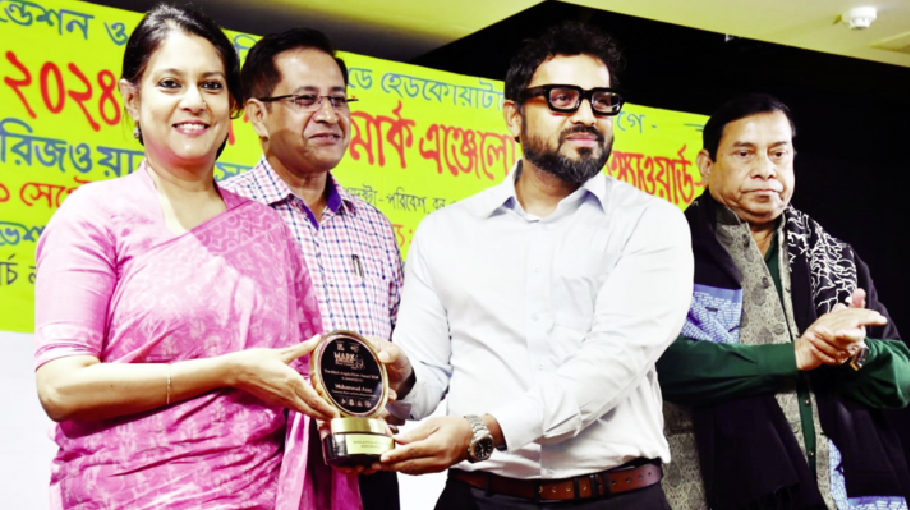Speakers reach consensus at CGS dialogue
Political crisis must be solved by political leadership


Adviser to the Ministries of Environment, Forest and Climate Change, and Water Resources Syeda Rizwana Hasan on Saturday emphasised that freedom, especially the freedom to access timely justice, should not be taken for granted.
Now that people "could finally speak", she urged them to be constructive, define their focus, and listen to each other.
"The path to reform was the path to realising their dreams," she said while speaking at a dialogue moderated by Zillur Rahman, Executive Director of CGS.
Rizwana Hasan expressed her gratitude for the many faces that had joined during the protest.
She acknowledged that others had suffered more than she had.
For her, justice was having her family returned to her, as asking for more at that time seemed impossible.
"Public support taught me that doing the right thing eventually bears fruit. A fascist regime doesn’t become fascist in isolation; it corrupts the justice system, media, civil society, and other institutions," said the Adviser.
Even if the laws are changed, those who implement them often still support the regime, she said.
Her personal dreams included independence—personal, occupational, and national.
The Centre for Governance Studies (CGS) hosted the dialogue on Saturday at the Bangladesh Institute of International and Strategic Studies (BIISS) auditorium.
The dialogue featured guests who have been vocal about the oppression of the past regime and faced challenges because of their actions.
Prominent individuals from all walks of society shared the many ways they suffered and were discriminated against under the previous regime.
Speakers also focused on the sort of changes and reforms they would like to see in Bangladesh’s future, expressing general concern about the apparent inaction displayed by the government regarding recent societal unrest.
A need for more transparency from the interim government and a more inclusive approach came up in the discussion.
Zillur began by stating that for 15 years, people had fought for their dreams, often doubting they could be realised.
"Many had sacrificed their lives for these dreams. Over the past 15 years, all national institutions had been destroyed, and corruption had become endemic," he said.
Many had resisted the tyranny of authoritarianism from within the country, suffering as a result, he said.
"Among those gathered on Saturday were individuals who had fought and suffered. Yet, the fight was far from over."
Munira Khan stated that the government needed to be more transparent and spend time on proper planning.
Their spokespersons should communicate their activities and progress. She expressed hope that the interim government would hold a free and fair election.
Kazi Faisal Bin Seraj observed that shrinking civic space creates an information vacuum, making non-traditional media more important.
He noted that when he first began working in Bangladesh, the narrative of the economy was strong, but there were now questions about why NGOs and CSOs were not doing enough.
He emphasised that it was critical to understand the restrictive legal environment they faced.
Dr. Badiul Alam Majumdar, Lead of the Election System Reform Commission and Secretary of SHUJAN, emphasised that citizens must seize the opportunity before them.
He highlighted the importance of everyone playing their part, or else the dream, spirit, and expectations would remain incomplete. He shared that he and his family had been discriminated against under both the Awami League and BNP governments.
Despite this, he believed that today presented an amazing opportunity and stressed the importance of unity, checks, and balances to prevent the misuse of power.
Barrister Andaleeve Rahman, Chairman of the Bangladesh Jatiya Party (BJP), stressed the need for good people in politics.
He warned that if corrupt individuals entered politics, they would ruin any system.
He called for reforms that would allow good people to enter politics, noting that politicians were no longer seen as heroes.
While he was optimistic about the media, he believed the current government’s connection with the people was weak, and they needed to implement the reforms the public demanded.
Didarul Islam Bhuiyan, Member of the DSA Victims Network, recounted how he had been picked up after posting on social media about irregularities in relief measures during the COVID-19 lockdown.
He was interrogated for seven hours, accused of being a traitor and conspirator without evidence. He questioned why DSA cases had not yet been dropped, arguing that these “black laws” used to suppress people should be consigned to a museum.
Zonayed Saki, Chief Coordinator of Ganosanghati Andolan, discussed how the quota movement evolved into a single-point demand due to over a decade of struggle.
He emphasised that the political forces involved in the uprising needed to be considered in the current process. Fascist forces were still active.
Nurul Haque Nur, President of Gono Odhikar Parishad, shared that he had been blacklisted from television for a long time, alongside others like Asif Nazrul and Nurul Kabir. Agencies had warned him that they would be monitoring his movements and had even threatened attacks if he went anywhere without their consent, which eventually materialised.
He spoke of the oppression and suppression witnessed under multiple governments and expressed hope for genuine reform under the current interim government.
Pritom Das, Member of the Jatiya Nagorik Committee, shared his experience of being falsely charged with offending religious sentiments.
He was later arrested due to his political activism and social media posts, spending five months in jail. He recounted how communal violence in the region had targeted him, leading to social isolation as even friends and relatives stopped contacting him.



